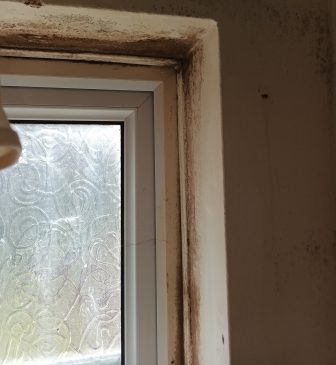 The Property Ombudsman (TPO) has published new guidance aimed at helping agents, landlords and tenants deal with condensation, damp and mould in their homes.
The Property Ombudsman (TPO) has published new guidance aimed at helping agents, landlords and tenants deal with condensation, damp and mould in their homes.
New research by TPO has revealed the scale of damp and mould in rental properties.
A survey of 719 letting agents showed:
• Nearly all had managed properties with damp and mould issues
• 42% of lettings businesses had ongoing issues relating to damp and mould in properties
• 9% of agents surveyed said they were unconfident in landlords’ ability to recognise issues and 72% were confident of a quick resolution
• Most agents believed that condensation due to tenant activities such as drying clothes on radiators, showers/baths and cooking without using extractor fans were the main causes of damp and mould
• Where damp and mould occurred as a result of construction issues, most agents felt that the property should not be let until the problem was resolved.
The Ombudsman’s casework in 2023 revealed:
• More than 1,000 damp and mould enquiries received by The Property Ombudsman’s free consumer service
• Over 200 damp and mould specific cases accepted for investigation.
The study found that letting agents who are unsure at recognising damp and mould can have serious consequences in properties are less likely to resolve issues with landlords.
While most respondents were confident about landlords recognising the consequences, 23% were not, which meant problems would usually be resolved more slowly as landlords would need to be educated about the consequences before agreeing to take action.
The majority of 719 agents surveyed by the only Ombudsman in the private rented sector recognised the consequences of damp and mould but many believed they were often linked to tenant activities, such as not using extractor fans during cooking and bathing, drying laundry, insufficient ventilation and heating.
The majority of agents also considered that where construction issues were the cause, a property should not be let until those issues had been resolved.
A set of new guidance for tenants, agents and landlords is designed to spot the signs of condensation, damp and mould as well as give preventative tips and advice on reporting issues. Heating and ventilation by opening windows and using extractor fans are key to helping prevent damp and mould as well as wiping away condensation and using anti-fungal products on mould.
If renters follow this advice and still experience problems, issues should be reported to the landlord and/or agent for investigation. Separate guidance for landlords and agents covering construction and property defect issues has also been produced. If issues can’t be resolved, tenants and agents can contact their council’s private housing team.

Tenants referred more than 1,000 enquiries about damp issues to The Property Ombudsman in 2023 which resulted in 200 cases and the award of more than £36,000 to tenants.
Rebecca Marsh, The Property Ombudsman, said: “Our research shows what a complex issue this is. Condensation, damp and mould are interlinked and caused by a variety of factors: environmental, structural and behavioural but one thing is clear, we need to work with renters, landlords and agents to prevent it occurring.
“We’ve published some simple guides which we’ll share with businesses, landlords and tenants to ensure greater awareness of the causes and symptoms, how to report it and the risks in living in damp and mouldy conditions.
“We welcome the government’s plans for further protections for tenants in the private sector as we’ve seen the devastating effects of properties not being adequately repaired or maintained.”
The incoming Awaab’s Law, named after Awaab Ishak, a two-year-old who died after exposure to mould, will give greater protections to social housing tenants by imposing timescales for investigation and resolution on landlords.
The new government has pledged to extend these provisions to the private sector as part of a range of reforms to clarify rights for private tenants.


Comments are closed.